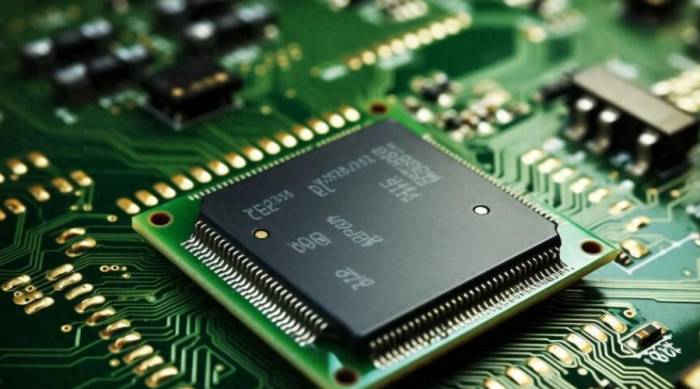TSMC's newly built wafer fab in the United States will need to overcome a series of challenges to become profitable.
After securing chip subsidies, TSMC decided to introduce the latest technology at its Arizona plant, marking a step forward in President Joe Biden's plan to strengthen the security of the tech supply chain. However, advanced chips capable of supporting AI tasks are likely to remain in Asia for production, leaving several pieces missing in the United States' AI chip puzzle.
According to the Financial Times, sources revealed that AMD plans to be one of the first customers of TSMC's Arizona plant, commissioning the manufacturing of high-end GPUs and CPUs. However, allowing customers to choose where to produce chips goes against TSMC's existing strategy, which could reduce the flexibility in allocating production capacity and thereby compress gross margins. It is rumored that if customers want to use specific fabs, they must sign a separate agreement with TSMC, possibly paying a higher price or depositing a prepayment in advance.
In addition, although TSMC is willing to increase its investment in the U.S. plant, the start-up time for local processes is lagging behind Taiwan. Analyst Myron Xie from SemiAnalysis pointed out: "We believe Nvidia wants to use 2nm process technology by 2026, but TSMC will not introduce 2nm at its second Arizona plant until 2028, which will not keep up with Nvidia's schedule."
However, asking TSMC to speed up its pace could weaken its key advantage, which is the ability to achieve higher yields with new processes than its competitors, with R&D engineers in Taiwan playing a crucial role in the initial stages of the process. A person familiar with TSMC's considerations was quoted in the report as saying: "It's not that we don't want to bring advanced processes to the United States earlier, but when the company expands new technologies, it needs the support of global R&D centers nearby, which means we must first expand production in Taiwan."
Advertisement
In addition, the United States also needs advanced packaging technology that installs high-bandwidth memory (HBM) into GPU modules. Currently, TSMC has no intention of setting up advanced packaging facilities in the United States, partly because of the low output in Arizona. Although Amkor Technology's CoWoS advanced packaging plant, a major U.S. IC packaging and testing company, is expected to fill the gap after going into production a year after TSMC's similar facility, Amkor is unable to create a key packaging component used to connect logic ICs with memory.
It is worth noting that the Wall Street Journal previously reported that Samsung Electronics plans to announce an additional $20 billion investment in Texas next week, which includes the construction of an advanced packaging facility, using technology similar to that used by TSMC to package AI chips for Nvidia.Should TSMC Transfer More Core Assets?
Chip manufacturing represents the pinnacle of technology and industry, but it is also a game of cost.
This is why, although integrated circuits were born in the United States, their production and manufacturing quickly shifted to East Asia over several decades, to the extent that 80% of the world's integrated circuits are now produced in Asia.
TSMC has built not only wafer fabs but also corresponding R&D centers in the Taiwan region, to develop future-oriented 2nm and 1.4nm chip production technologies. At the same time, TSMC's absolutely leading market position also affects the flow of talent.
Due to the huge investment in wafer fab construction, TSMC has even driven the growth of the construction industry in the Taiwan region.
The strong semiconductor industry and education system have formed a two-way feedback system, with a batch of fresh graduates flowing to chip manufacturing companies like TSMC and UMC, continuously supplying ammunition to the industry.
This is why SemiAnalysis believes that as chip packaging technology becomes more advanced, TSMC customers such as Apple and NVIDIA will find it increasingly difficult to free themselves from Asia. This is because TSMC is always developing the latest manufacturing and packaging processes in the Taiwan region, where costs are lower and talent is easier to find.
In other words, in the process of industrial transfer, what is transferred is not only factories and production lines, but also the accompanying technological innovation system and talent training system. In the context of "re-shoring of manufacturing," factories can be transferred, but the talent system cannot be copied and pasted.

From 1979 to 2011, the number of manufacturing jobs in the United States decreased by 40%, and what likely disappeared along with the factories were the supporting suppliers, university majors, and related research in academia.Talented individuals tend to gravitate towards the highlands of industry. Nowadays, it goes without saying that American graduates in Seattle prefer to work for Amazon rather than toil at Boeing's factory, 23 kilometers away, by tightening screws.
Moreover, "semiconductor manufacturing" is even a career choice that many Americans have never heard of. A human resources official in Phoenix, Arizona, named Kweilin Waller once stated, "Applicants often look puzzled when they hear about the semiconductor manufacturing industry; they are not very familiar with it."
Therefore, the United States' attempt to reshape its chip production capabilities through subsidies and factory construction will ultimately encounter the issue of a talent gap.
Among the most valuable companies in the United States, only Apple can barely be considered a manufacturer, but it does not own a single factory. In 2012, Obama once asked Jobs, "What would it take to bring iPhone production back to the United States?" Jobs replied without hesitation: "Those jobs aren't coming back."
*Disclaimer: This article is the original creation of the author. The content of the article represents his personal views. We republish it solely for sharing and discussion, and it does not represent our endorsement or agreement. If you have any objections, please contact the backend.


Comment